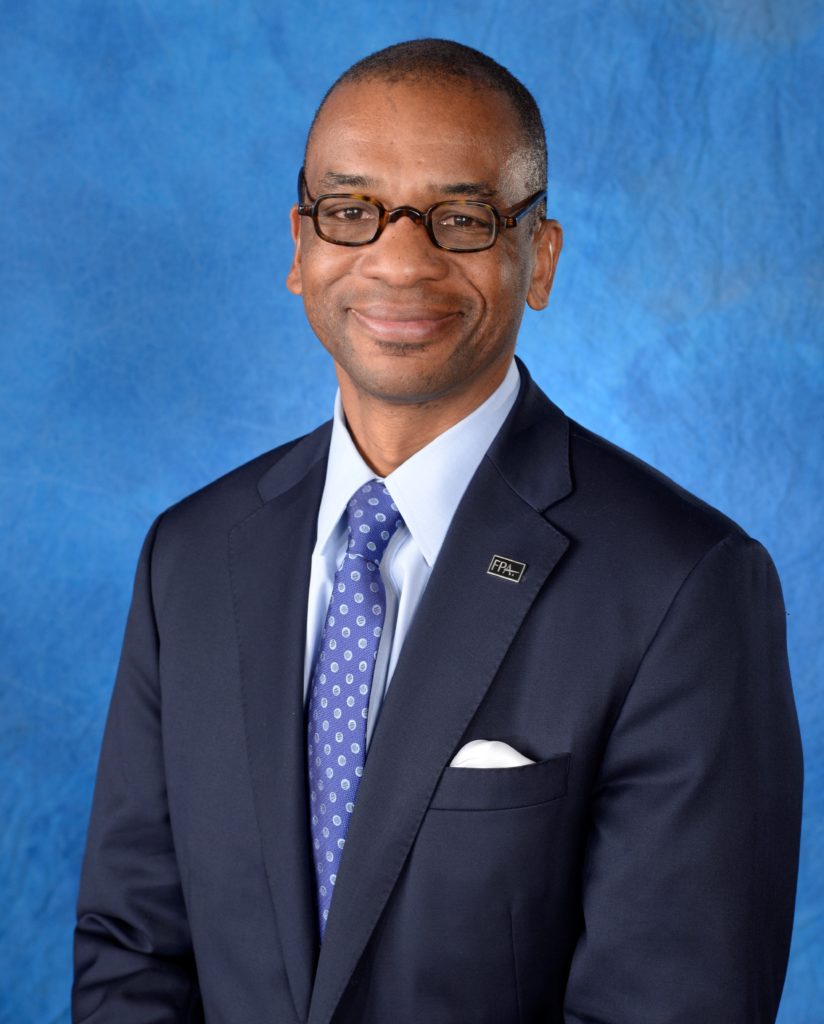Nationwide protests over race highlight hurdles faced by non-white advisers
« Return to News
Financial planners are bracing for the economic pain clients will experience due to the nationwide protesting and looting sparked by the fatal arrest of George Floyd in Minneapolis last week.
As the nation is still in the midst of the coronavirus pandemic and a receding economy, some advisors’ clients are getting hit even harder, specifically, those who have small businesses being looted as a result of the racial injustice in the U.S., said Frank Paré, president and founder of PF Wealth Management Group, and former president of the Financial Planning Association.
“Even with insurance, [clients] are going to have unexpected costs on top of, already, an economic disaster,” Paré said in a telephone interview. “The economic pain is going to be … felt by people already feeling economic pain, and it’s just going to make financial planning more difficult.”

In fact, the Oakland, Calif.-based firm is meeting with clients whose businesses have been looted, Paré said. “I was on the phone with a client yesterday who had her building looted and she is in retirement and relies on the income from that building,” he said. “This is impacting her ability to feel secure — she’s not wealthy, she is not of working age and she cannot afford to lose this income.”
The negative impacts from looting are just one of the immediate implications financial advisers will face amid nationwide protests. However, the issue is a small slice of a larger challenge as the industry responds to institutional racism.
“In recent years, there has been a lot of discussion about how the financial planning profession needs to be more accessible, supportive and welcoming,” FPA President Martin Seay said in a statement. “To many, that talk hasn’t led to meaningful action. For many minorities, the doors of the profession are still closed. We need to do more to equip those in the majority with the necessary resources to fully embrace the challenges facing minority practitioners today.”
While the FPA’s statement is a “good start” to have leaders in the industry share their values, “leaders can’t monitor people’s hearts,” Paré said. “If you have individuals who harbor perhaps biased or racist attitudes and thoughts, no amount of leadership talking about it is going to change that individual’s heart. It’s more than just discussion, it has to be true policy.”
THE DIVERSITY DISCONNECT
Recent research shows that the industry’s vocal support for diversity and inclusion tells a different story than its actions.
Flexshares’ Advisor Teams and Diversity Study conducted between October and November 2019 revealed that when asked to identify initiatives that would help their firm align with the future of the industry, advisers ranked “attract and hire more diverse talent” second to last. Further, when it comes to hiring diverse talent, 55% of advisers responded they do not believe increasing diversity should be a strategic priority.
The survey, released June 1, was completed by 488 advisers across the country and sent to 112,036 financial advisers total. Broken down by race, 93.8% of respondents were White, 2.2% were Black, 2.6% were Asian and 1.3% were Latino, according to the survey.
In terms of how advisers reflect the population, the U.S. Census Bureau, the Center for Financial Planning and Cerulli Associates reported 31.7% of the total U.S. population is African-American or Latino as of 2018. By comparison, only 3.5% of CFP members were African-American or Latino.

“It’s disappointing,” said Alan Moore, CEO and co-founder of the XY Planning Network, in a phone interview. “The people who are answering these studies and representing those statistics are ultimately your hiring managers. If they don’t prioritize [diversity], it’ll never happen.”
In the end, advisers “know what they need to do,” to respond to institutional racism, Paré said. “The question is: Do we have the will and courage to do it?”
“You hire people of color to be a part of your firm to serve your clients, and if your clients have a problem with that person of color then maybe that client isn’t the one for you,” Paré said. “That’s a pretty bold statement, particularly if that client is wealthy.”
In that light, financial planners will have to do some “serious soul searching” in terms of whether or not they are willing to stand by their values at the expense of losing revenue, Paré said. “My guess is, by large, the answer is no, unless it’s some wirehouse where the CEO and the rank are going to get paid regardless.”
RBC Wealth Management-U.S., for one, is voicing actionable steps in response. “We need to acknowledge the racial divide that continues to exist in the U.S. — a divide that manifests itself in disparity and inequities for people of color,” President Thomas Sagissor wrote in an all-employee memo sent June 1. “And in addition to acknowledging this problem, we need to do something about it.”
In the memo, Sagissor wrote the actions taken by RBC to not only speak up but step up. Those actions include reaching out to public officials, releasing a joint statement with several CEOs from Minnesota’s top companies to call for change, and committing $250,000 to We Love Lake Street, a fund set up by the Lake Street Council to provide direct support to small business and nonprofits.
“In the coming days and weeks, there is an opportunity for us to better engage with community leaders, listen to them about what is most needed and find ways to better partner and build stronger bonds,” Sagissor wrote. “Together we are stronger and can make a bigger impact.”
ACTION VIA ESG INVESTING
John Streur, CEO of Calvert Research and Management, wrote in a column exclusive to InvestmentNews that ending racism in the industry is an ESG problem. “Responsible investors have come to trust environmental, social and governance research and investment strategies to avoid investing in companies that are lagging on taking needed action to address human rights violations and to take real action to drive needed change,” he wrote. “As a group, we are failing to meet these needs.”
To that end, ESG investing will likely be impacted, Moore said. “Being able to see your values and your portfolio is more important to the younger generation than it was to the older generations,” he said. “Because of that, we fully expect that advisors are going to have to spend more time and energy being able to match portfolios to people’s values. [Clients] may look to ESG funds that prioritize minority business owners or minority entrepreneurs that get significantly less investment dollars from venture capitalists.”
Paré concurred, noting that there is an opportunity in the environmental, social and governance space. “Managers who talk about ESG have an opportunity to expand to include not only diversity and inclusion but also the extent of what they are doing to essentially combat institutional racism.”
“That will send a message to show how companies are taking steps, not only internally, but now what is a company doing outside in terms of the community,” Paré said. “By putting that type of criteria out there to fit within the ESG space, it will send a message and ultimately help to affect change.”
The post Nationwide protests over race highlight hurdles faced by non-white advisers appeared first on InvestmentNews.
Have any Questions?
We're here to help. Send us an email or call us at +1 (585) 329-9661. Please feel free to contact our experts.
A donation will be made by Adviser First Partners to a Veterans organization on behalf of all financial professionals and firms that register each month
Contact Us© 2025 Adviser First Partners. All Rights Reserved.
Web Design by eLink Design, Inc., a Kentucky Web Design company

